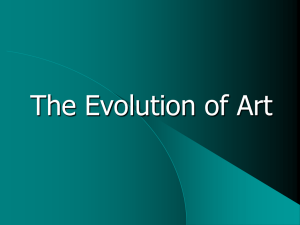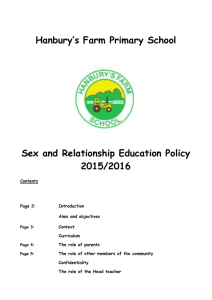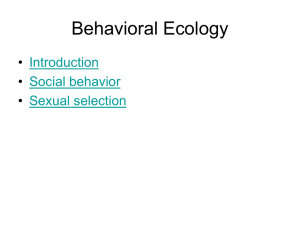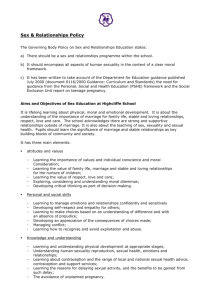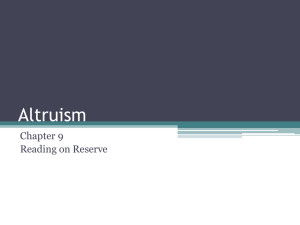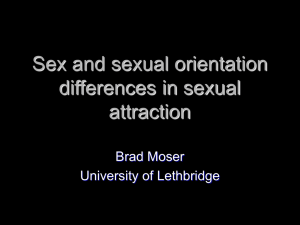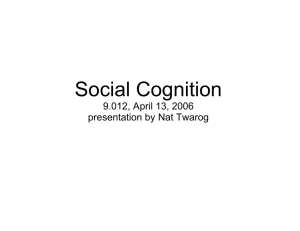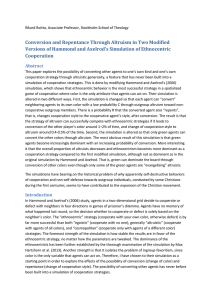Document
advertisement
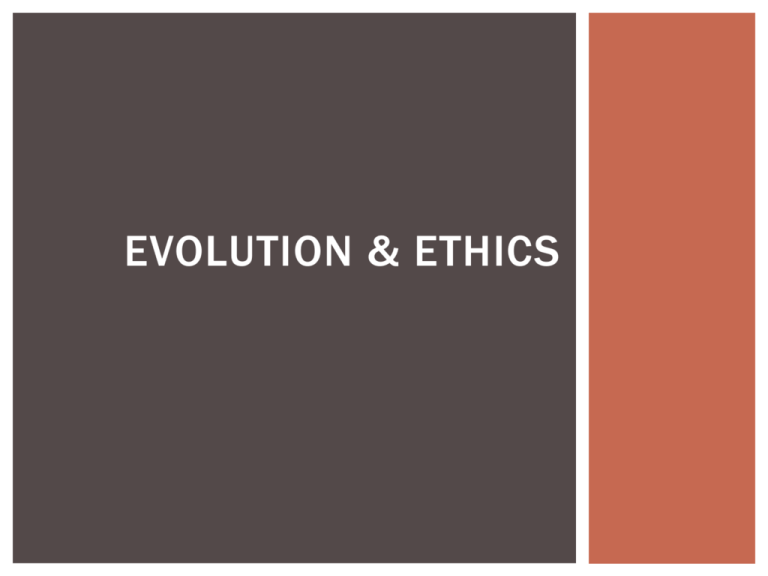
EVOLUTION & ETHICS ALTRUISM a social behavior counts as altruistic if it reduces the fitness of the organism performing the behavior, but boosts the fitness of others. EVOLUTIONARY GAME THEORY Game theory with fitness rewards and punishments that then iterate over generations Fundamental findings: altruism is an evolutionary unstable strategy. A population of altruists can be invaded by selfish agents, who then drive down the proportion of altruists to 0 PUBLIC GOODS GAMES In the basic game, subjects secretly choose how many of their private tokens to put into the public pot. The tokens in the pot are multiplied by a factor (> 1) and this “public good" payof f is evenly divided among players. Each subject also keeps the tokens they do not contribute . Nash equilibrium (solution) = 0 Problem of ‘free-rider’ SO, HOW DOES COOPERATION EVOLVE? kin selection (Hamilton 1964 ) reciprocal altruism (Trivers 1971) commitment mechanisms (Frank 1988); social norm and punishment mechanisms (social selection) Sexual selection (Miller) SEXUAL SELECTION Competition for reproduction Intersexual selection – attractive to opposite sex (mate choice) Intrasexual selection (intimidating, defeating same-sex rivals) Sexual strategies: Short-term: good genes Long-term: genes, parenting, partners MATE CHOICE costly signaling a signal is so costly that only high health, high status, high condition animals can afford to produce it, the signal can remain evolutionarily reliable FACIAL SIGNALS FACIAL-WIDTH RATIO MORAL VIRTUES AS COSTLY SIGNALS Apart from physical appearance and social status, which traits most excite our romantic impulses? People often fall in love based on positive assessments of each other’s generosity, kindness, honesty, courage, social sensitivity, political idealism, intellectual integrity, empathy to children, respectfulness to parents, or loyalty to friends. ATTRACTIVE MORAL VIRTUES kindness: emotional responsiveness to the needs of others empathy: lovingness, af fection, fondness, commitment , forgivingness, trust, and perspective-taking niceness: agreeableness and nonviolence honesty heroism MORAL BEHAVIOR Morality through mate -choice model also has distinctive strengths and weaknesses that can explain some moral virtues—especially those that show high sexual attractiveness, assortative mating, phenotypic and genetic variance, heritability, condition-dependent costs, conspicuous display in courtship settings, and young adult age peaks in display not to suggest that human morality is sexually motivated at the level of individual behavior. Evolutionary functions do not equal proximate motivations WHAT ONLINE AD REALLY MEANS? SF, 26, seeks kind, generous, romantic, honest man single female, 26, seeks a healthy male of breeding age with a minimal number of personality disorders that would impair ef ficient coordination and parenting in a sustained sexual relationship, and a minimal number of deleterious mutations on the thousands of genes that influence the development of brain systems for costly, conspicuous, altruistic displays of moral virtue.”
